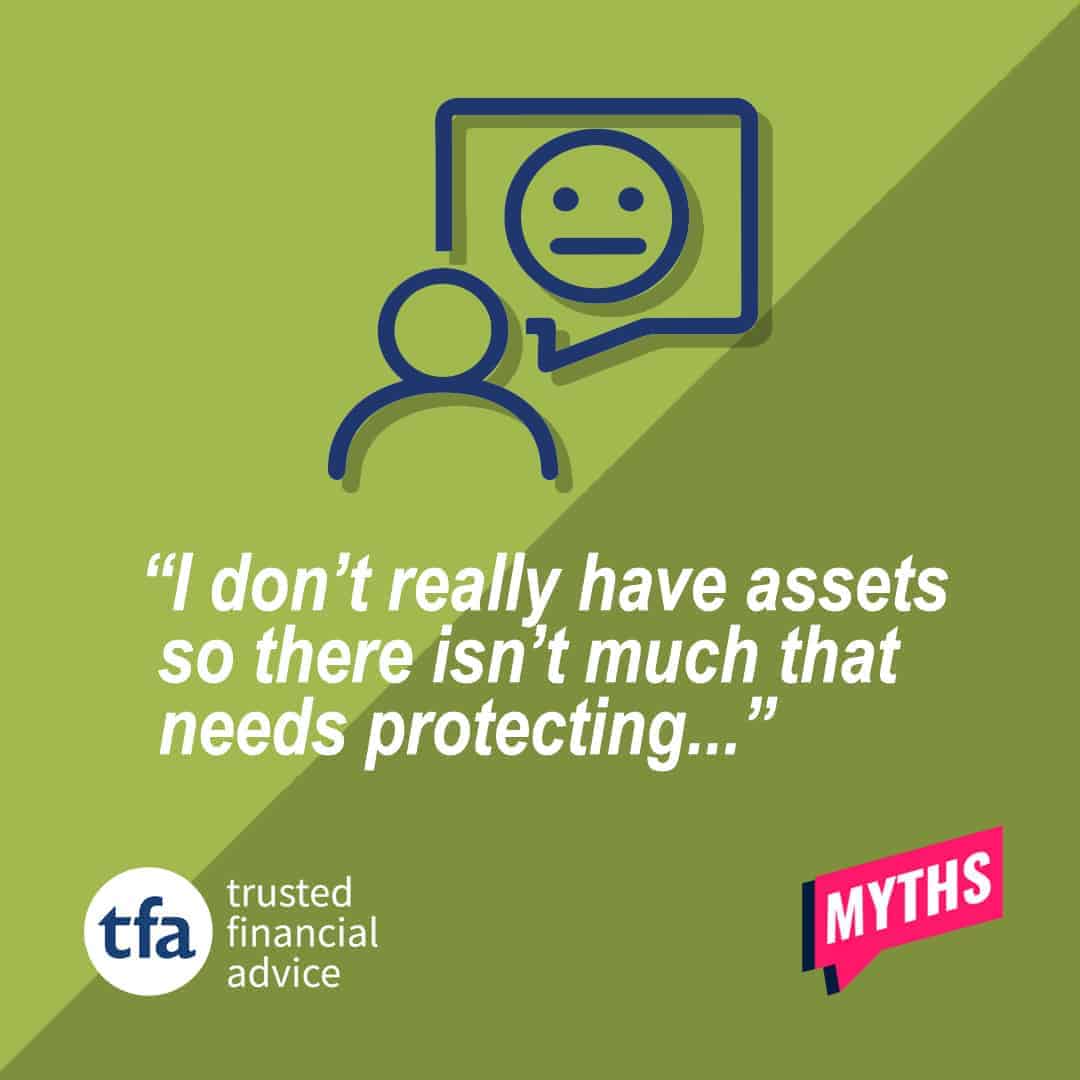
Ask yourself, what is your biggest financial asset?
A staggering 9 in 10 of us don’t see ourselves i.e. our earning potential, as our largest financial asset according to the latest L&G Deadline to Breadline report. Even though our lifetime earnings tend to total significantly more than a property, car or savings pot we don’t see ourselves as an asset worth protecting!
As homeowners we tend to see our property as our biggest value asset and for those of us in the private rented sector we view our savings pot or our car as being our most valuable asset. Nearly six times as many people insure their home contents than insure themselves with income protection.
For some reason we are under the misconception that financial assets need to be material goods. This misconception leads to further confusion whereby we think that it’s only worth insuring valuable, tangible possessions such as our house or a car.
The reality is that our personal ability to earn an income is actually our biggest asset and we need to protect it.
The average working household’s income is just under £35,000 and ONS data shows that an average worker could earn over £1.4million in their lifetime. Compare this to the average home valued at £232,000* or the average price of a used car of £10,000** or the average savings pot of £2,700 and you’ll quickly see that our largest financial asset is clearly being overlooked.
Our focus is to help you understand your risks of being unable to work, identifying how financially resilient you are and ensuring that you have the right protection in place. Our aim is to educate and challenge those widely held misconceptions, busting those myths to ensure our clients don’t end up on the breadline. We are ‘our’ biggest financial asset and it’s important we remember that.
Our independent advisers are on hand to review your personal situation and recommend the type of income protection that is best suited to your needs. Our first meeting is always at our cost. Our advisers will take time to understand you needs, explain the benefits of being independent, whole of market advisers and the financial advice process. Please contact us on the details below.
If you stop paying premiums your cover will cease.
Protection policies are subject to underwriting. The provider may exclude certain circumstances or increase your premium as a result of this process.
You may find that the cover provided is less than you need if it is not reviewed regularly.
